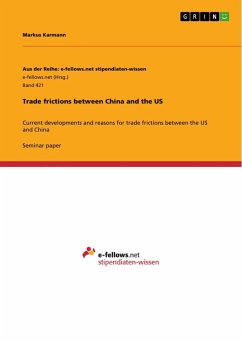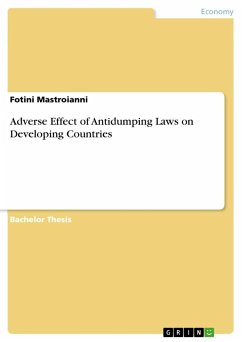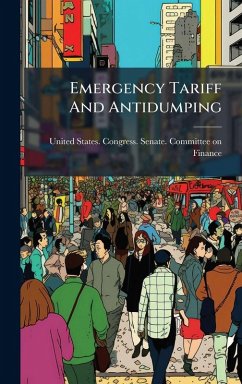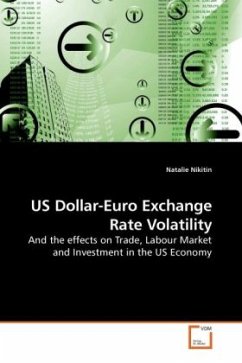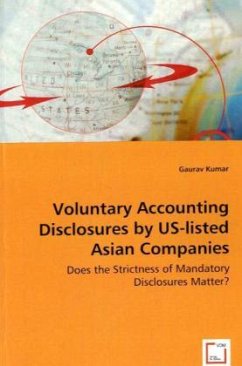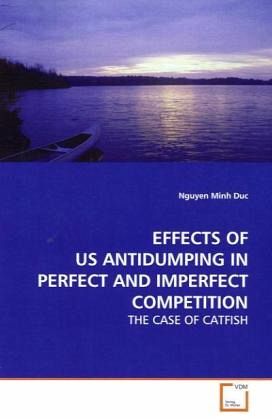
EFFECTS OF US ANTIDUMPING IN PERFECT AND IMPERFECT COMPETITION
THE CASE OF CATFISH
Versandkostenfrei!
Versandfertig in 6-10 Tagen
32,99 €
inkl. MwSt.

PAYBACK Punkte
16 °P sammeln!
Working on trade policy issues, this book provides empirical evidence for effectiveness of U.S. antidumping measures under Byrd Amendment. The Byrd Amendment permits US firms that petition successfully for antidumping duties to collect tariff revenues. In a competitive market where domestic and imported goods are imperfect substitutes, the payments are akin to a production subsidy and thus undermine the duty s ability to raise price. Applying the theory to the catfish war, antidumping measures taken by the US against Vietnam are shown to have had a modest yet positive effect on the US price. T...
Working on trade policy issues, this book provides
empirical evidence for effectiveness of U.S.
antidumping measures under Byrd Amendment. The Byrd
Amendment permits US firms that petition
successfully for antidumping duties to collect
tariff revenues. In a competitive market where
domestic and imported goods are imperfect
substitutes, the payments are akin to a production
subsidy and thus undermine the duty s ability to
raise price. Applying the theory to the catfish
war, antidumping measures taken by the US against
Vietnam are shown to have had a modest yet positive
effect on the US price. The Byrd Amendment is
justified to enhance tariff effects on the US
domestic price and trade flows under the Bertrand
competition. The estimated increase associated with
the duty is very small in price and sales of
domestic fillets and insignificant on US farm price.
empirical evidence for effectiveness of U.S.
antidumping measures under Byrd Amendment. The Byrd
Amendment permits US firms that petition
successfully for antidumping duties to collect
tariff revenues. In a competitive market where
domestic and imported goods are imperfect
substitutes, the payments are akin to a production
subsidy and thus undermine the duty s ability to
raise price. Applying the theory to the catfish
war, antidumping measures taken by the US against
Vietnam are shown to have had a modest yet positive
effect on the US price. The Byrd Amendment is
justified to enhance tariff effects on the US
domestic price and trade flows under the Bertrand
competition. The estimated increase associated with
the duty is very small in price and sales of
domestic fillets and insignificant on US farm price.



